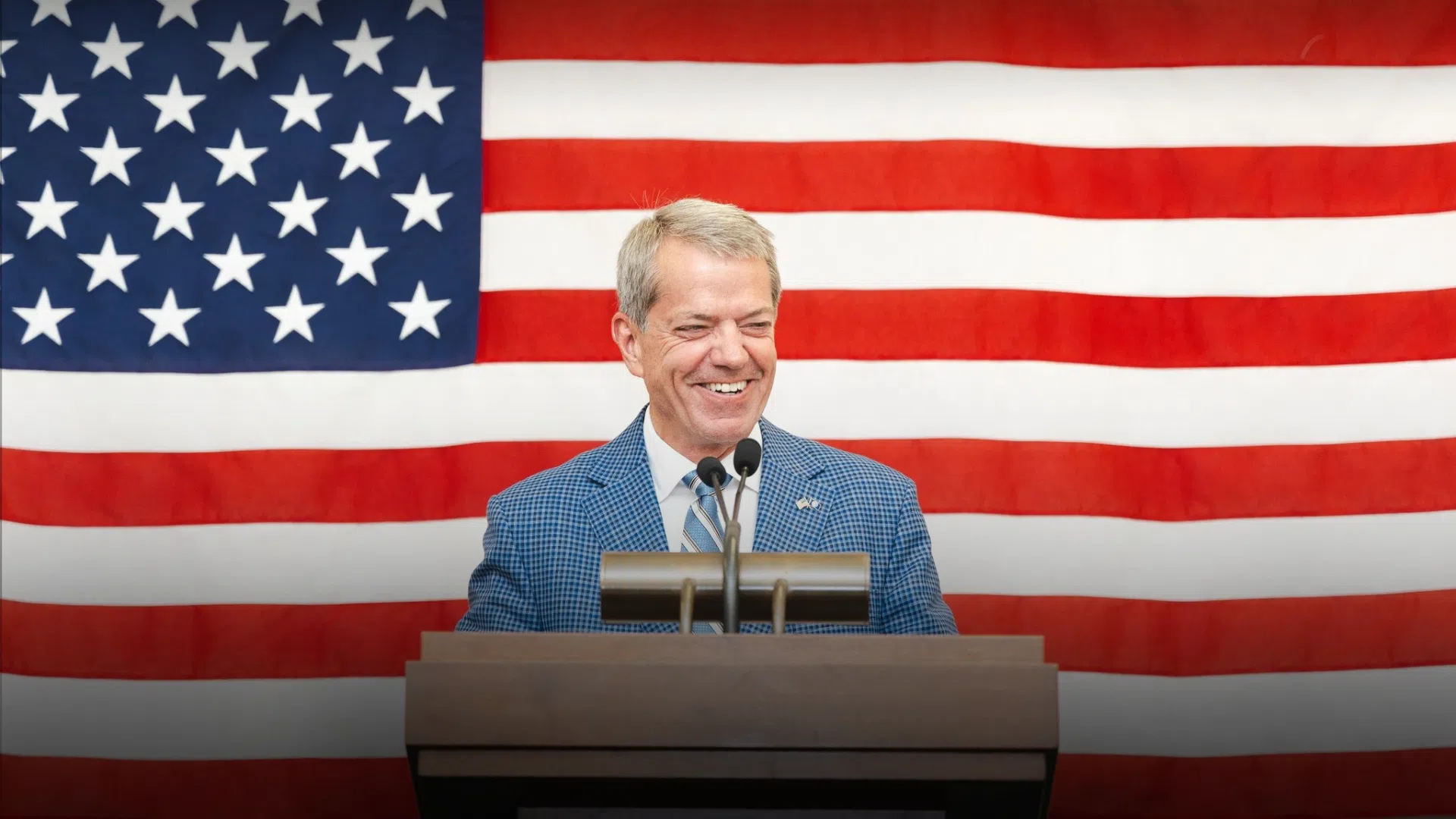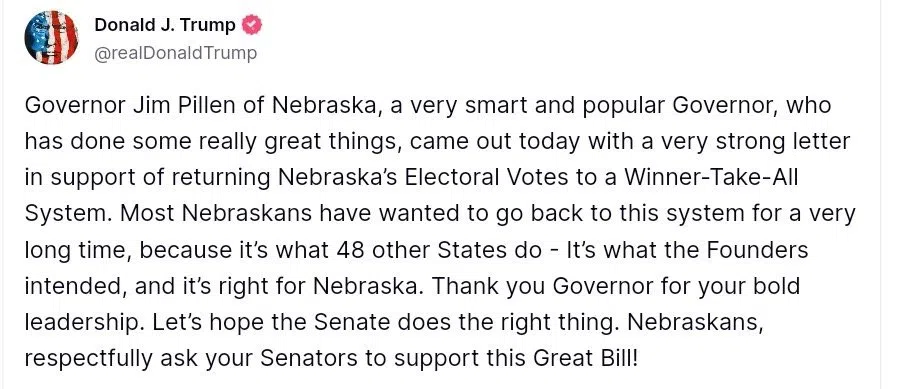Governor Jim Pillen is the latest in a long line of state Republicans who would like to change Nebraska’s unique election quirk, which allocates individual electoral college votes to each congressional district for the presidential election.
Nebraska and Maine are the only two states in the country to follow the ‘Congressional District Method,’ allocating one electoral vote to each congressional district and the remaining votes to the statewide winner, totaling the state’s congressional delegation. Pillen, however, would prefer Nebraska switch to the ‘Winner-Take-All Method,’ which is currently floating around Nebraska’s Unicameral as LB 764, introduced by Senator Loren Lippincott of Central City.
Nebraska has dished out individual electoral college votes since 1992, thanks to former Lincoln State Senator DiAnna Schimek. Her motivation for the change was to encourage presidential candidates to campaign in the state.
However, all five of the state’s electoral votes continued to go to the Republican candidate until 2008, when NE-02 delivered the first Democratic vote in state history to Barack Obama. This happened for the second time in 2020, with NE-02 going to Joe Biden.
Pillen issued the following statement Tuesday, calling for the Legislature to pass LB 764 and deliver it to his desk to sign into law.
“I am a strong supporter of Senator Lippincott’s winner-take-all bill and have been from the start. It would bring Nebraska into line with 48 of our fellow states, better reflect the founders’ intent, and ensure our state speaks with one unified voice in presidential elections,” Pillen said.
The U.S. Constitution does not mandate a ‘Winner-Take-All’ system. Instead, states are free to determine how they select their representatives in the Electoral College. During the first four decades of the United States, states experimented with many different electoral systems. The Presidential election of 1824 was the first election in which the majority of states used the ‘Winner-Take-All’ method for choosing their presidential electors.
LB 764, yet to advance out of committee, may be unlikely to make it to Pillen’s desk with only 6 days left of 2024’s 60-day session. It would require 33 votes to pass, and survive three rounds of debate.
Former President and GOP hopeful Donald Trump thanked Pillen this effort on his social media website ‘Truth Social.’
Civic Nebraska, a voter advocacy non-profit, responded saying they would be prepared to try and place the issue before voters via referendum in November if the bill were to succeed.
“More than any other state, Nebraska’s one-house Legislature requires lawmaking to be deliberative. Our Unicameral emphasizes thorough discussion and consideration of proposed legislation, ensuring that state laws reflect our state’s different perspectives and interests. Unlike national politicians, a vast majority of Nebraskans understand that such a methodical process takes time, which is a precious commodity in the legislative calendar. A last-minute attempt to change the state’s long-standing law undermines this well-honed process. It circumvents the necessary scrutiny and debate essential for effective policymaking, compromises the integrity of the legislative process, and risks a reckless, ill-conceived law with unwelcome consequences,” the statement read.
Nebraska-U.S. Senate candidate Preston Love, a long-time voting rights advocate, issued the following response.
“The very essence of democracy demands fair representation and accountability, yet one-party rule has perpetuated a climate where the voices of many are stifled and ignored. This is another attempt to threaten the democratic process in Nebraska in a Presidential election year that is already underway.”










